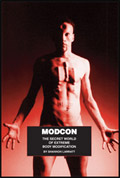So a little while back I asked the following question on BME, asking what level of suffering people are comfortable causing. A rather disturbing 24% said that they'd not think twice about causing suffering to anyone other than those they care about, but 72% said they'd not want to cause suffering in any form.
| Do you care if your actions cause harm or suffering to come to others? |
| What do I care? I'm all that matters.: |
  |
3% |
| Only if I care about them.: |
  |
21% |
| Only if they're human.: |
  |
5% |
| I don't want to cause suffering in any form.: |
  |
72% |
| |
1,737 votes in total; voting finished Apr 22, 2003. |
|
|
As a follow-up poll, I asked
ideally what people would like to eat… Now, I'd have assumed that the answer would be 72% vegan, since if you're not wanting to cause suffering to others, that's really the only diet you can choose since eating animal-products clearly harms the animals involved, the planet, and ultimately humanity as a whole will be driven to extinction if it continues on this path.
| Ideally (not actually) what would you like your diet to be? |
| Loads of meat: |
  |
28% |
| Omnivorous with a little meat: |
  |
34% |
| Vegetarian + Dairy/Eggs: |
  |
17% |
| Vegan: |
  |
20% |
| |
5,333 votes in total; voting finished Apr 30, 2003. |
|
|
But no, only 20% would choose a vegan diet… I've mentioned here before in brief that the crisis of the 21st century won't be oil, but will instead be
clean fresh water… So we will soon have to decide if we, as a race, would rather commit suicide, or if we'd rather keep eating a meat-heavy diet.
So would you rather be dead or vegan? And if you answer dead, remember that you're answering for everyone. So when you refuse to go vegan, you also condemn all of your family and loved ones to the same fate…
PS. I will stronly recommend two books: The Food Revolution and The New Ethics of Eating.
Brief followup comment added six hours later: I believe that the reason for the disparity between the two answer sets is as follows: When a question is posed in abstract terms, they will answer with the “good” answer, whereas when it's posed in direct/real-life terms, they will give the “true” answer.



Post a Comment